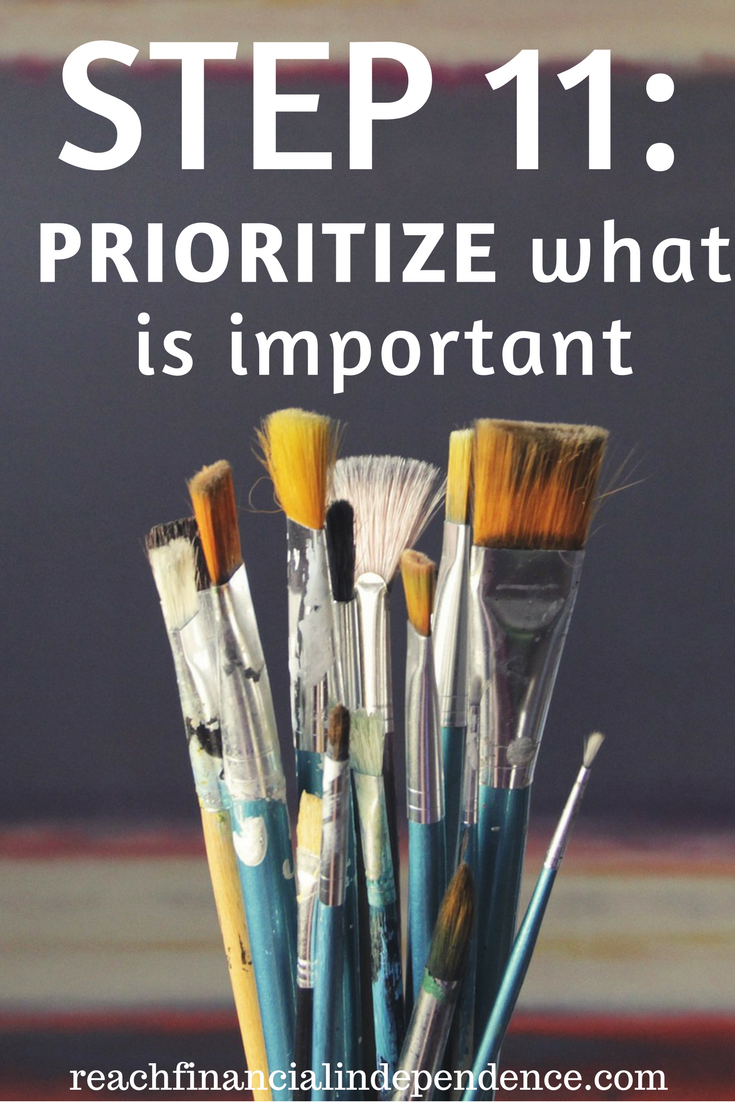
This post is part of a 30 days series called the 30 steps program to financial independence. You can check the list of other posts here.
Prioritize what is important
As we saw yesterday, one of the ways to reach financial independence quicker is to minimize your wants, those impulse purchases you will regret later on, and those little amounts you spend here and there without realizing how much you are actually spending during the course of a week, a month, or a year.
For example, if you have lunch with your colleagues every day at work, at a local restaurant, you may be spending about $10. No big deal, right? You go to work 5 days a week, 50 weeks a year (unless you are French and you only work 45 weeks or less). During the course of a year, you will spend $2,500 on meals.
No, think about it for a second. What would you do with $2,500? what if, during that year, you take leftover from home and bring them to work. You may miss the interaction with your colleagues, so let’s say you still go out to lunch with them twice a month. Leftovers are basically free since they are from the night before and would probably otherwise go to waste. If you do that, you would have at the end of the year $2,250.
Again, would you rather have $2,250 in your pocket or spend it in lunch, most of which you won’t even remember at the end of the year? You can still suggest to your colleagues that they join you for lunch in the park, and have a picnic together. I would much rather have $2,250.
Plus, this is after tax money. This is $3,000 of your gross income that you don’t need to make. You can use those $2,250 and put them towards saving, and get closer to financial independence.
What is more important for you? I prefer the cash, no doubt about that. But when I was working, I never had such an amazing experience with my work colleagues that I wanted badly to go to lunch with them. My priority was to do my job, do it well, and make money. My social life was outside my job.
If you prioritize what is important to you, you will be able to cut back on spending in non important areas. I spend a LOT of money on flights, hotels, restaurants and travel in general. Traveling is taking most of my time, and resources. Yet I don’t miss a penny since I love it everyday.
As a result, I do not have a home. My life fits on my motorcycle and I do not pay rent for an empty apartment I wouldn’t use anyway. Some people ask me how I travel so much and how I can afford it.
Then they remember they pay $1,200 in rent, $300 in utilities and $500 in food and going out after work and other work-related expenses. And I simply tell them that I spend on average less than $1,500 a month to live a life of travel and adventure. We do not have the same priorities in life.
So take a sheet of paper and write down what is REALLY important to you. It might be Sunday lunches with your family, your new baby, your holidays, your home, whatever.
My list goes: traveling, eating well, technology, quality, reliable items.
I am happy to spend more money than most on those things.
Make a list of what is not so important.
To me, it is paying rent for a flat I wouldn’t use, having a car I wouldn’t use, brand named clothes (I buy quality items that last longer and don’t really care about fashion), overpriced drinks and food in bars.
So I do not pay rent or have a car at the moment, and if I go out, I usually prefer cheap places and focus on the social interaction with my friends rather than the surroundings.
By defining clearly those priorities, I live a life that is in accordance to it, and save money.
